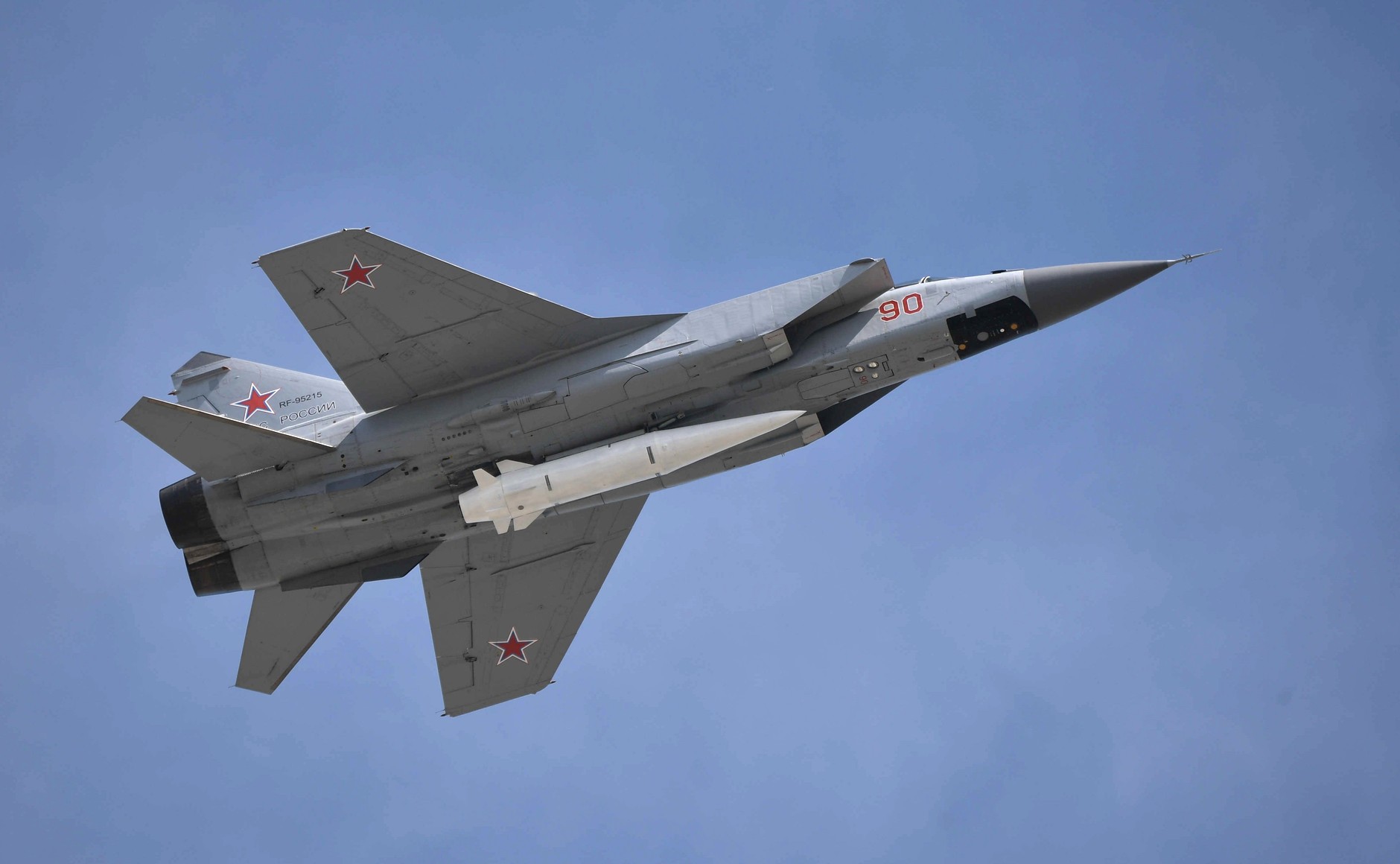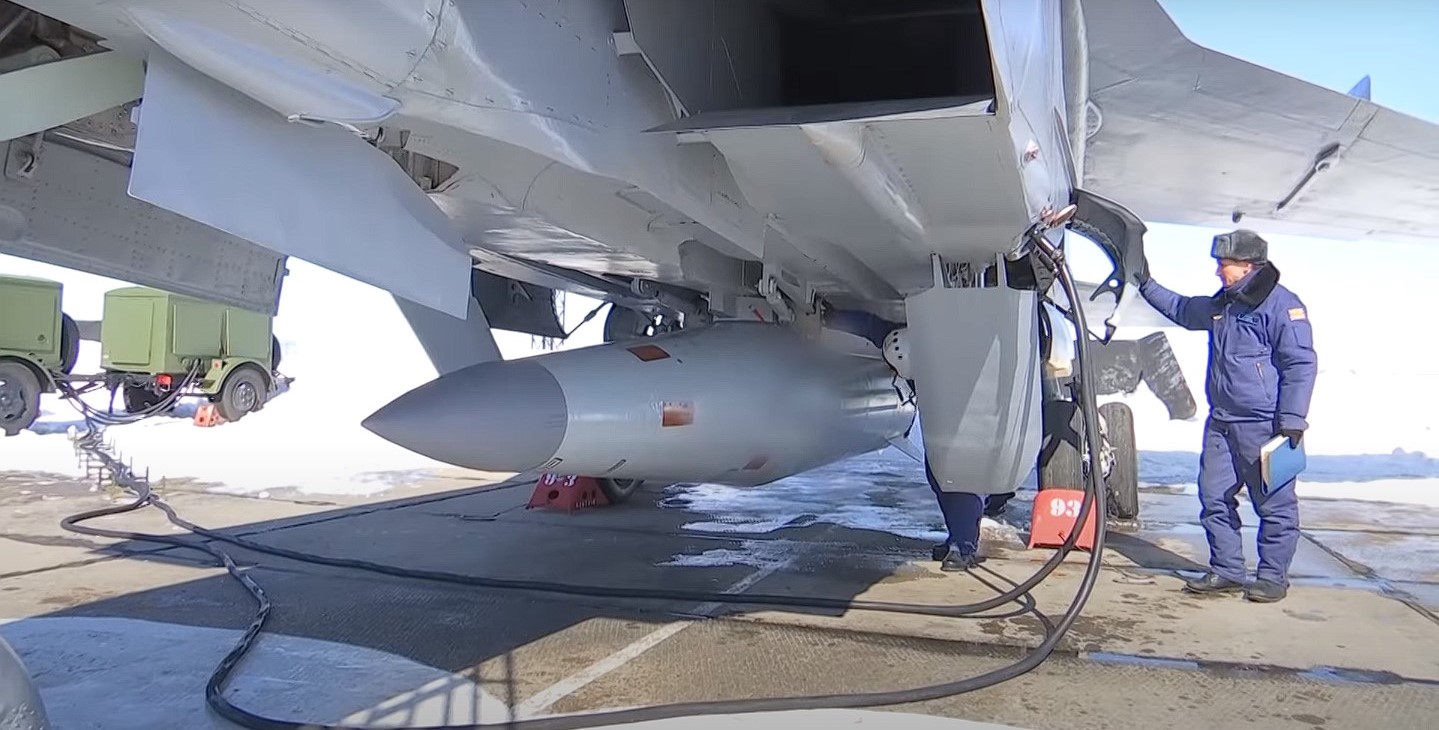Russia imprisoned 12 scientists in the field of hypersonics, three of them dead
2 February, 2024 Test launch of Zircon hypersonic missile. Photo from the network Russia has imprisoned at least 12 physicists who studied physical processes at hypersonic speeds.
The BBC reported on this. According to the publication, the detained scientists were convicted under the article "high treason". So far, three of them have died.
The Federal Security Service of the Russian Federation began to take an active interest in scientists in this field after 2018. It was then that Russia launched an active PR campaign for its own hypersonic missiles and tested them.
 A MiG-31K fighter jet with a Kinzhal missile. Photo from the network
A MiG-31K fighter jet with a Kinzhal missile. Photo from the network
Soon after, several physicists were arrested at the Central Research Institute of Machine Building (TsNIIMash), the Central Aerohydrodynamic Institute named after N.E.
Zhukovsky (TsAGI), and the Khristianovich Institute of Theoretical and Applied Mechanics (ITAM SB RAS). At the Khristianovich Institute of Theoretical and Applied Mechanics, the main suspects were director Alexander Shiplyuk and chief scientists Alexander Maslov and Valery Zvegintsev. The first two were accused of transferring secret technologies to China.
According to Western media, Valery Zvegintsev was also accused of transferring hypersonic technology to Iran because of the publication of similar information in a local magazine, which he used for internal use. A case of treason was also opened against a leading expert, a physicist from the Central Research Institute of Machine Building, V. Kudryavtsev.
Under strange circumstances, he did not live to see the start of the trial.
 A MiG-31K fighter jet with a Kinzhal missile. Photo from the network
A MiG-31K fighter jet with a Kinzhal missile. Photo from the network
The same fate befell another scholar, Roman Kovalev, who was found dead a few weeks after his release from custody. Another deceased was Dmitry Kolker, head of the Laboratory of Quantum Optical Technologies at the Institute of Laser Physics, Siberian Branch of the Russian Academy of Sciences.
After his arrest, he was taken to the detention center directly from the hospital with stage four cancer, where he died two days later. In private conversations between lawyer Yevgeny Smirnov and officers of the Federal Security Service of the Russian Federation, they noted that the detentions were carried out by the order "from above". In addition, the investigators explicitly stated that they would report to Putin on every such case against scientists.
Smirnov also added that such attention to the scientists on the part of the FSB is connected with the pretense that Western intelligence services are hunting for Russian missile technology.
The FSB's work consisted of searching for the most suitable international projects of scientists over the past 10-15 years to accuse a person of treason.